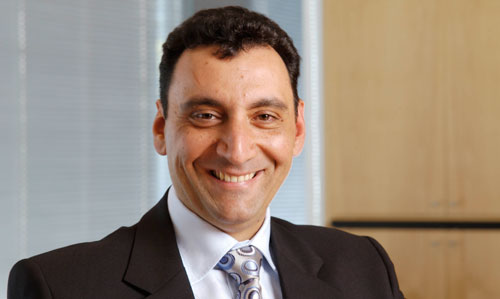
Delivering fibre to the home, also known as FTTH, will become part of mainstream politics in SA, just like it has in Australia, predicts Steve Nola, who was until recently CEO of Dimension Data in Australia.
Nola, who has been named as head of Didata’s new cloud solutions business unit, says delivering high-speed fibre infrastructure into homes and businesses is becoming a critical asset to countries that want to compete in the global economy. As such, it will become a political imperative.
Australia’s government has won praise and courted controversy for agreeing to build a national fibre network, costing in the region of A$40bn, most of which is being funded by Australian taxpayers. By the time the project, known as the National Broadband Network, is completed in 2021, the plan is to have 93% of Australians connected to high-speed fibre-optic services.
It’s the single-biggest infrastructure project in Australia’s history and has come under fire from opposition political parties over its costs. Construction has already been completed in Tasmania, with the network build now spreading to the Australian mainland.
Nola says he would support any country that considers this kind of investment, but adds he’s not suggesting everyone invest quite as much as Australia. “It is inevitable … and will become like power, water or gas infrastructure,” he says. “In Australia, we’ve almost come full circle, where the government owns the telco infrastructure again. But it will put Australia back on the map.”
He admits that different governments have different political priorities, but says to be competitive, it’s crucial for countries to make broadband available to as many people as possible. “Technology will play a critical role in the way society operates, personally and in business … and it’s very difficult to do that if the infrastructure is not there,” he says.
Countries are competing for talent and for investment and those that can provide “enabling infrastructure” are the ones that will be more likely to succeed.
Nola believes the private sector would never have been able to deliver broadband access to all Australians, especially those living outside the main urban centres. “That’s where the economic models wouldn’t work,” he says. “A small community in the bush must get the same services at the same price. Private enterprise wouldn’t do that. Government at some point had to take control of it.”
The challenge is to make broadband affordable for everyone to use, and the private sector wouldn’t have been able to achieve that, he argues.
Nola says Australia’s National Broadband Network will have a dramatic impact on telecommunications operators and service providers.
Incumbent fixed-line provider Telstra, for instance, will have to change its approach to the market, he says. “Competition will come from new angles [and] the dynamics in this market in the next five years will be incredibly interesting to watch.” — Duncan McLeod, TechCentral
- Subscribe to our free daily newsletter
- Follow us on Twitter or on Facebook




